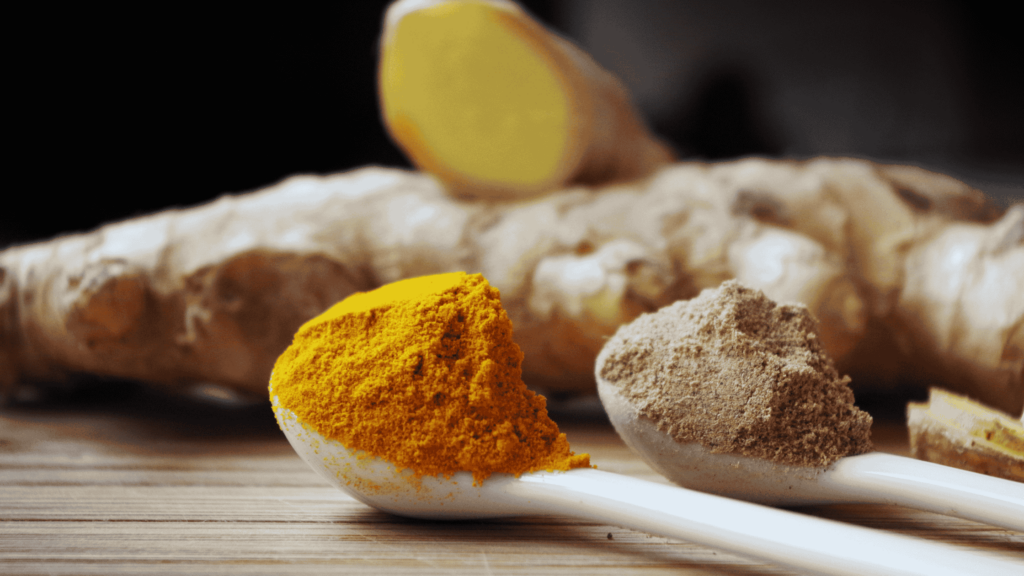
Wondering How Bioenergetics Links Leaky Gut?
Your gut is at the center of your overall health! It’s more than just a food processor digesting your meals—it’s your Immune System’s teammate, your energy booster, and even a big influence on your mood. When your gut lining is strong and your microbiome is balanced, it works quietly in the background, keeping you feeling great. Bioenergetics can’t specifically test for leaky gut, but it can uncover energetic factors that may connect to the permeability of your gut!
But when things go off track, it can create a domino effect on your overall health. Leaky gut happens when the lining of your gut isn’t as protective as it should be. This can let things like toxins or undigested food particles pass into your bloodstream, creating stress your body has to deal with unexpectedly.
That’s where bioenergetic testing comes in. It won’t diagnose leaky gut, but it can give you a deeper look into the stressors and imbalances affecting your gut. This insight can guide you toward support if you’re trying to fix a leaky gut. From pinpointing triggers to incorporating gut healing herbs, you’ll have tools to support your body and get back on track—all from the comfort of home.
What is Leaky Gut?
Think of your gut lining as a highly secure fence. It stretches across 4,000 square feet of intestinal lining and comprises cells held together by “tight junctions,” which act like gatekeepers. These junctions control what passes into your bloodstream—allowing nutrients through while blocking harmful substances like toxins, bacteria, and undigested food particles.
When those tight junctions loosen or become damaged, the fence weakens, and things that should stay inside your gut can “leak” into your bloodstream. This can trigger inflammation and stress throughout your body, potentially leading to symptoms like bloating, fatigue, brain fog, and more. This is leaky gut or increased intestinal permeability.
Leaky gut is a hot topic. While conventional medicine debates whether it’s a standalone condition or simply a symptom of other issues, research continues to uncover its potential link to broader health problems. Some experts argue there’s not enough solid evidence or a definitive test for leaky gut to classify it as a standalone condition. Whether labeled as a condition or not, its impact on overall wellness cannot be ignored.
Testing for Leaky Gut
When you’re exploring how to test for leaky gut, you’ll quickly notice there isn’t a single gold-standard test that’s widely accepted across all areas of wellness. However, there are several methods you can explore, especially in holistic and functional medicine, to assess your gut health and check for intestinal permeability.
1. Lactulose-Mannitol Test
This test measures how well your gut absorbs two different sugars—lactulose and mannitol. Mannitol is small and easily absorbed, while lactulose is larger and shouldn’t pass through a healthy gut lining. If lactulose shows up in your urine, it could be a sign of increased permeability.
- Limitations: While it’s non-invasive and simple, some argue that it doesn’t give a full picture of gut health.
2. Zonulin Testing
Zonulin is a protein that helps regulate the tight junctions in your intestinal lining. Higher zonulin levels in blood or stool have been linked to increased intestinal permeability.
- Limitations: Various factors can influence Zonulin levels, and this test may not definitively pinpoint leaky gut.
3. Comprehensive Stool Analysis
A stool test provides insight into overall gut health, including levels of beneficial bacteria, pathogenic microbes, inflammation markers, and digestive function.
- Limitations: This test offers a broader view of gut health but doesn’t directly measure intestinal permeability
4. Bioenergetic Testing
For a holistic and accessible approach, bioenergetic testing is a unique option that allows you to explore stressors and imbalances in your gut from the comfort of your home. If you’re looking to test for leaky gut in a convenient and comprehensive way, bioenergetics could be an empowering tool to explore.
- How It Works: This noninvasive test detects potential gut stressors, such as toxins, pathogens, and sensitivities, using hair and saliva samples.
- Advantages: While it doesn’t diagnose conditions, bioenergetic testing can guide personalized strategies, including dietary changes and gut-healing remedies.
For those wanting to fix a leaky gut, bioenergetic testing can guide you toward strategies that align with your body’s needs, such as dietary changes and gut healing herbs.
How to Navigate a Leaky Gut from a Bioenergetic Perspective
Bioenergetics uses technology to assess the body’s energy fields and identify imbalances. It evaluates how different frequencies interact with your body, shedding light on areas that may be under stress—like the gut. Unlike conventional tests, bioenergetics focuses on energetic patterns rather than physical markers. Using bioresonance to test for leaky gut – can measure energetic environmental and food sensitivities, hormonal and nutritional imbalances, and levels of bioenergetic stress within our body systems.
Body Systems That May Be Affected by Leaky Gut
The CBH Energetics Full Scan tests 14 body systems; the ones closely related to leaky gut may include:
- Chronic Inflammation: Leaky gut lets toxins and undigested food particles leak into your bloodstream, triggering immune responses that lead to systemic inflammation. This inflammation is linked to stress and many chronic conditions.
- Autoimmune Reactions: The Immune System might mistakenly attack the body’s own tissues, contributing to autoimmune diseases like rheumatoid arthritis, Hashimoto’s thyroiditis, and lupus.
- Impaired Digestion and Absorption: A compromised intestinal barrier makes it harder for the body to absorb essential nutrients, leading to deficiencies that affect overall health and stress levels.
- Gut-Brain Axis: Leaky gut disrupts the communication between the gut and brain, potentially leading to issues like anxiety, depression, and mood swings.
- Hormonal Imbalance: Leaky gut can disrupt the function of hormones like insulin, contributing to adrenal fatigue, blood sugar issues, and chronic stress.
- Thyroid Function: Leaky gut and chronic inflammation may affect thyroid hormones, leading to hypothyroidism or hyperthyroidism, which can increase stress.
- Brain Fog and Cognitive Function: The inflammation caused by leaky gut can impact brain function, leading to mental fatigue, brain fog, and reduced cognitive performance, increasing stress. Learn more about the gut-brain connection in this blog.
- Mood Disorders: Leaky gut has been associated with conditions like depression, anxiety, and even neurological disorders like multiple sclerosis due to inflammation and immune activation.

Energetic Sensitivities That May Contribute to a Leaky Gut:
- Gluten
- Dairy
- Sugar
- Alcohol
Energetic Toxins That May Contribute to a Leaky Gut:
- Pesticides and herbicides
- Heavy metals (lead, mercury)
- Candida (yeast overgrowth)
- Giardia (parasite)
- Blastocystis hominis (intestinal parasite)
Energetic Nutritional Imbalances That May Contribute to a Leaky Gut:
- Zinc: Crucial for gut health, an imbalance can weaken the gut lining and increase susceptibility to infections and stress.
- Vitamin D: Low levels are linked to intestinal permeability and inflammation, contributing to autoimmune conditions.
- Omega-3 Fatty Acids: Essential for reducing inflammation and supporting gut integrity.
- L-Glutamine: Helps repair the intestinal lining. A deficiency can delay healing.
- Magnesium: Supports gut motility, reduces permeability, and helps manage stress.
Gut Healing Herbs for a Leaky Gut
When it comes to supporting your gut, nature offers some incredible tools. Gut healing herbs have been celebrated for centuries for their ability to soothe inflammation, support the gut lining, and promote better digestion. Our Full Scan takes this a step further, sharing balancing remedies that resonate with your energetic pattern.
Using bioenergetic analysis, the Full Scan identifies the stressors and imbalances affecting your gut health. From there, it provides a regimen that may include gut healing herbs, homeopathics, and supplements designed to support your journey to a healthier gut.
Some of the herbs best known for their gut healing and protecting properties to help fix a leaky gut are:
- Slippery Elm
This herb is rich in mucilage, a gel-like substance that soothes and coats the gut lining, promoting repair and reducing irritation.
- Marshmallow Root
Like slippery elm, marshmallow root is loaded with mucilage, making it a powerful ally for calming inflammation and protecting the gut lining.
- Licorice Root (DGL)
Deglycyrrhizinated licorice (DGL) helps reduce gut inflammation and supports the natural repair of the intestinal lining. This herb is found in the Dynamic Health Drink – available to anyone without testing! This nutritional shake is high in protein, fiber, and probiotics to support a leaky gut.
- Chamomile
Known for its calming properties, chamomile can reduce gut-related inflammation and help with digestive discomfort.
- Ginger
This powerhouse herb supports digestion, reduces inflammation, and may help restore balance in the gut microbiome.
- Turmeric
Packed with curcumin, turmeric is a potent anti-inflammatory herb that supports gut healing and overall digestive health.
- Aloe Vera
Aloe vera’s soothing properties can aid in reducing inflammation and healing the gut lining, making it an excellent choice for leaky gut support. Some love to drink this as a juice, while others prefer a nutritional supplement.
Take the First Step Toward a Healthier Gut
When your gut feels off, it’s a signal worth exploring. With bioenergetic testing, you can test for leaky gut through energetic stressors, rebalance your nutrition, and even tap into the power of gut-healing herbs—all personalized to your body’s needs.
Take the first step with the Full Scan, and let your gut lead the way to feeling your best.
DISCLAIMER: Balanced Health, LLC/CBH Energetics and any parent, subsidiary, affiliated, or related entities and companies do not provide medical advice or services. This post and the bioenergetic products and services offered by Balanced Health, LLC/CBH Energetics including, but not limited to, bioenergetic tests, bioenergetic scans, bioenergetic reports and related products and services (collectively the “Bioenergetic Products and Services”) are designed for educational and informational purposes only and are not intended to diagnose, treat, cure, or prevent any disease, condition, complaint, illness or medical condition and are not a substitute for professional services or medical advice. Testing is not used for the purpose of obtaining information for the diagnosis, prevention, or treatment of disease or, the assessment of a health condition or for identification purposes.


